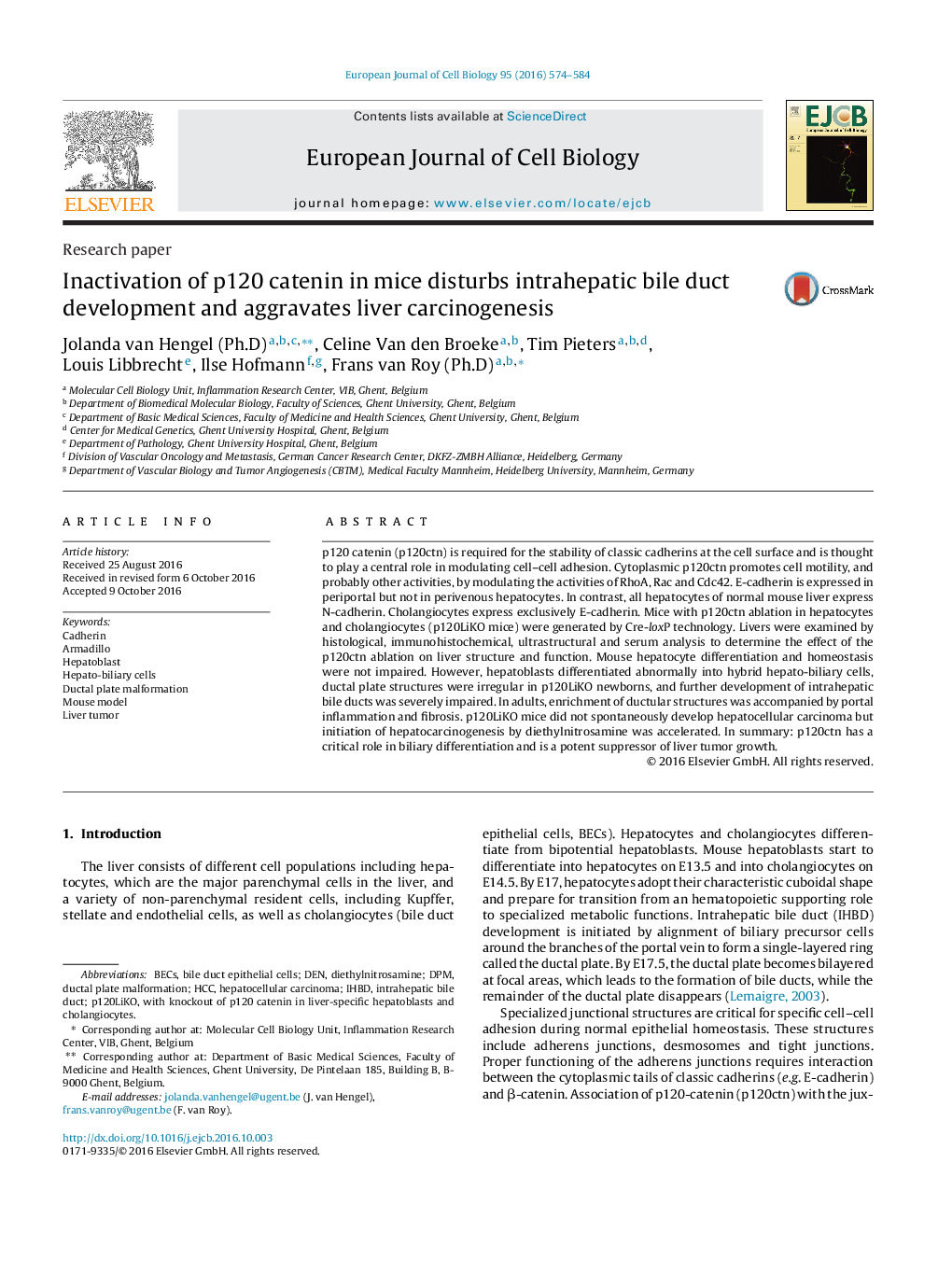| Article ID | Journal | Published Year | Pages | File Type |
|---|---|---|---|---|
| 5532269 | European Journal of Cell Biology | 2016 | 11 Pages |
â¢Functions of p120 catenin in mouse hepatocytes and bile duct epithelial cells were studied in vivo.â¢Mouse livers with tissue-specific p120 catenin ablation exhibited ductal plate malformation.â¢These mice were more sensitive to development of diethylnitrosamine (DEN)-induced hepatocellular carcinoma.
p120 catenin (p120ctn) is required for the stability of classic cadherins at the cell surface and is thought to play a central role in modulating cell-cell adhesion. Cytoplasmic p120ctn promotes cell motility, and probably other activities, by modulating the activities of RhoA, Rac and Cdc42. E-cadherin is expressed in periportal but not in perivenous hepatocytes. In contrast, all hepatocytes of normal mouse liver express N-cadherin. Cholangiocytes express exclusively E-cadherin. Mice with p120ctn ablation in hepatocytes and cholangiocytes (p120LiKO mice) were generated by Cre-loxP technology. Livers were examined by histological, immunohistochemical, ultrastructural and serum analysis to determine the effect of the p120ctn ablation on liver structure and function. Mouse hepatocyte differentiation and homeostasis were not impaired. However, hepatoblasts differentiated abnormally into hybrid hepato-biliary cells, ductal plate structures were irregular in p120LiKO newborns, and further development of intrahepatic bile ducts was severely impaired. In adults, enrichment of ductular structures was accompanied by portal inflammation and fibrosis. p120LiKO mice did not spontaneously develop hepatocellular carcinoma but initiation of hepatocarcinogenesis by diethylnitrosamine was accelerated. In summary: p120ctn has a critical role in biliary differentiation and is a potent suppressor of liver tumor growth.
